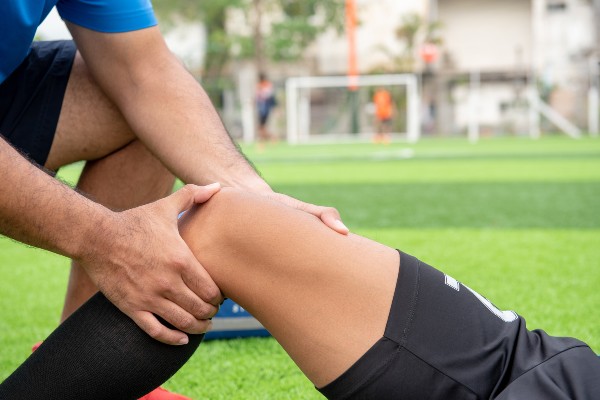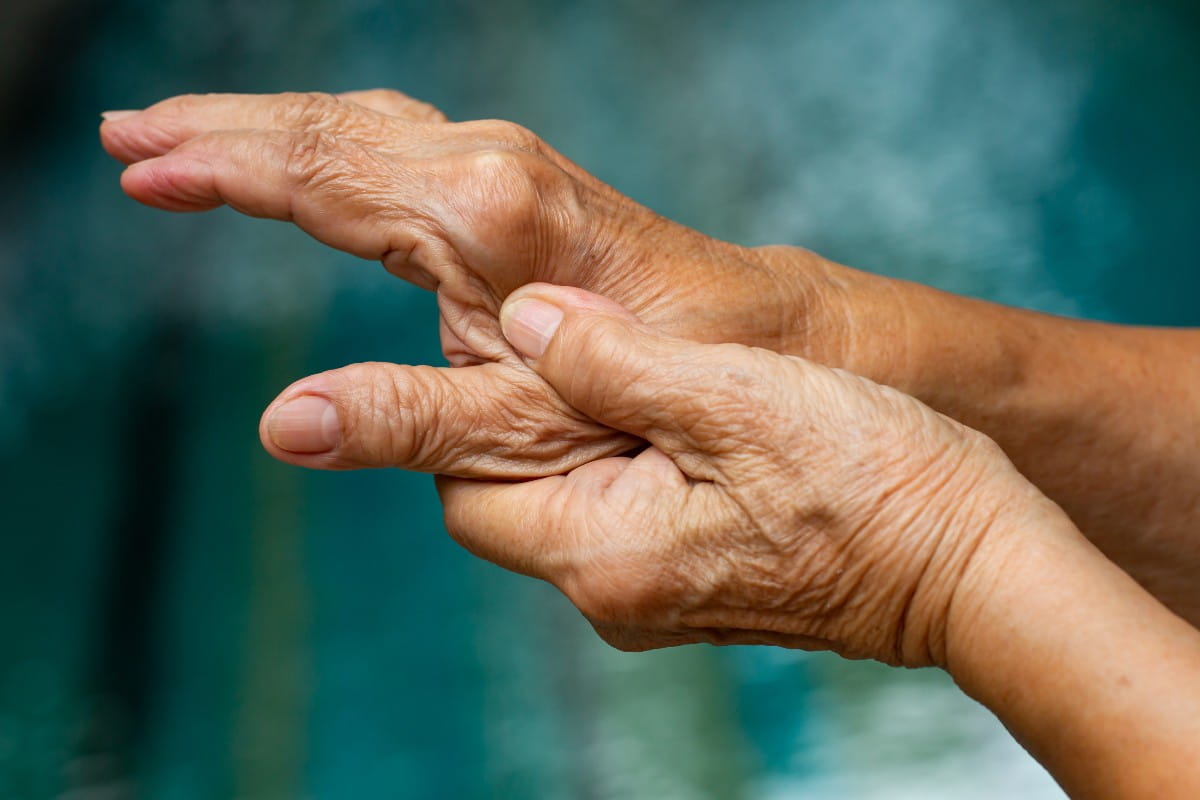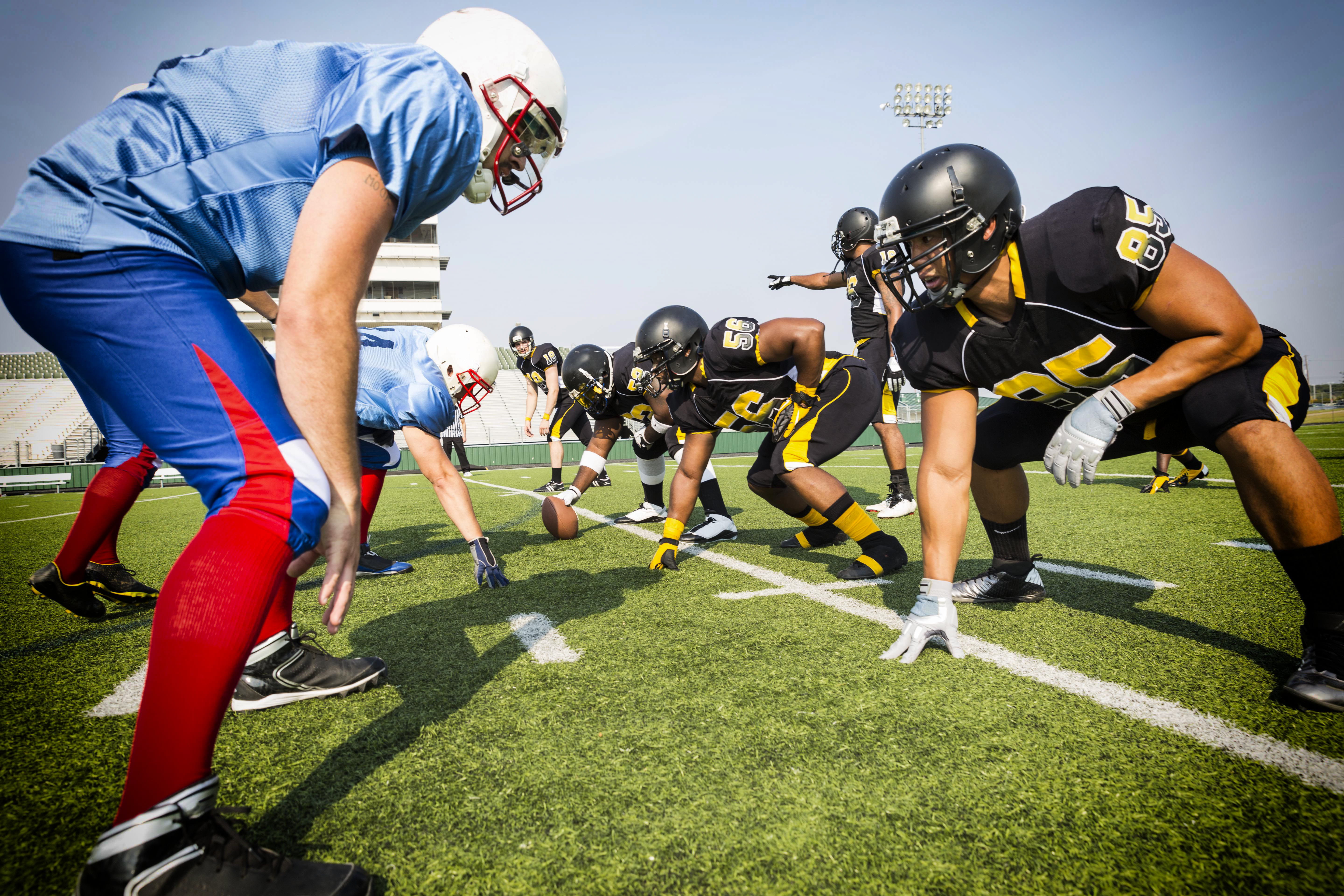Wondering if you tore your ACL?
If you twisted your knee while playing sports or heard a pop after a sudden movement, you might have injured your anterior cruciate ligament (ACL). The ACL is one of the key ligaments that help stabilize your knee. It prevents the shinbone from sliding too far forward and limits excessive rotation.
“An ACL tear is often caused in one of five ways,” explains Barbaro J. Perez, M.D., Orthopedic Surgeon at Riverside Orthopedic and Sports Medicine Specialists Gloucester. “You may have quickly changed direction, stopped suddenly, slowed down while running, landed awkwardly from a jump or collided with another player during a game.”
Symptoms of a Torn ACL
If you’ve injured your ACL, you might experience several symptoms right away, including:
- A popping sound at the time of injury
- Swelling within 6 to 24 hours
- Pain, especially when putting weight on the injured leg
- Trouble continuing to play or walk
- A weak or unstable knee
- Loss of full range of motion
- Tenderness around the knee joint
If you're noticing any of these ACL tear symptoms, it’s important to see an orthopedic provider quickly. Until your appointment, you can help manage the injury by:
- Resting and elevating your leg above heart level
- Applying ice for 15–20 minutes every few hours
- Avoiding any further physical activity
How Orthopedic Specialists Diagnose an ACL Tear
To confirm an ACL injury, your provider will review your symptoms, check your knee’s stability, and likely order imaging tests:
- X-rays to rule out bone fractures
- MRI scans to show ligament and cartilage damage
Grading the Severity of ACL Injuries
“There are three levels of severity we use to assess injured ligaments,” says Dr. Perez. “These grades, along with your activity level, help us decide the best treatment plan.”
- Grade 1 Sprain: Mild damage; the ligament is stretched but still stable.
- Grade 2 Sprain: The ligament is partially torn.
- Grade 3 Sprain: A complete tear, causing knee instability (most ACL injuries fall into this category).
Treating an ACL Injury Without Surgery
Not all ACL injuries require surgery. If your injury is minor or you don’t participate in high-demand activities, you might heal with non-surgical treatment:
- Nonsteroidal anti-inflammatory drugs (NSAIDs) for pain and swelling
- Crutches to reduce weight-bearing until inflammation subsides
- Knee brace to stabilize the joint
- Physical therapy to regain strength, balance, and range of motion
Rehabilitation exercises are crucial for strengthening your leg muscles and protecting your knee from future injuries.
Surgical Repair for a Torn ACL
For more serious injuries, especially if you're an athlete or live an active lifestyle – ACL reconstruction surgery may be recommended.
“Our ACL surgeries are performed arthroscopically, which means it’s a minimally invasive procedure,” says Dr. Perez. “It allows athletes to recover much faster than if we opened up the knee.”
“Our success rate for this procedure is higher than 90%,” he adds, “but that includes several months of our physical therapy program to achieve that positive outcome.”
Arthroscopic ACL reconstruction involves using small incisions and a camera to guide surgical tools. The torn ligament is replaced with a graft, which may come from your own body or a donor.
Post-Surgical Recovery
- Physical therapy starts soon after surgery to restore movement
- Gradually, you’ll work on building strength, endurance and stability
- A full return to sports may take 6 to 12 months depending on healing progress
Physical therapists also teach techniques to prevent future knee injuries.
Don’t Ignore Knee Pain
Living with an untreated knee ligament injury can lead to long-term instability and damage to other parts of the knee. The sooner you get an expert evaluation, the better your chances for full recovery.
To schedule an appointment for a possible torn ACL or ACL tear, contact Riverside Orthopedic and Sports Medicine Specialists today.



